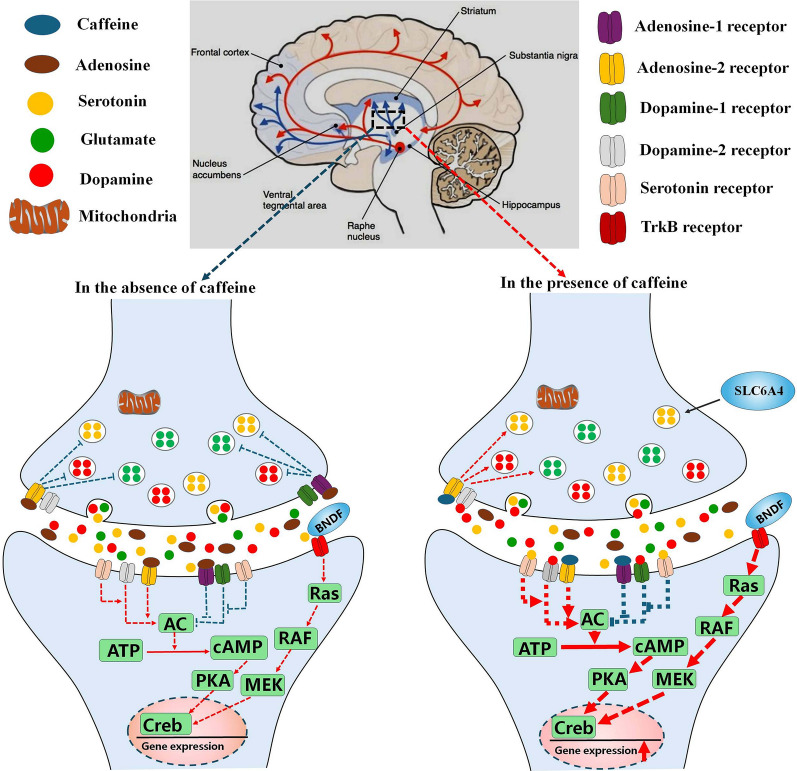Fig. 3.
The effect of caffeine on molecular pathways and neurotransmitters. In the absence of caffeine, adenosine acts as an inhibitory modulator of neuronal activity. Adenosine binds to its presynaptic receptor to inhibit the release of neurotransmitters including dopamine, serotonin and glutamate. It also binds to its postsynaptic receptor to disrupt the interaction of dopamine and serotonin with their receptors. Dopamine, serotonin and glutamate induce neuronal signal transduction and inhibit neuronal function. Caffeine abrogates the interaction of adenosine with its presynaptic and postsynaptic receptors, promoting the release of dopamine, serotonin and glutamate and enhances the interaction of dopamine and serotonin with their postsynaptic receptors to increase neuron activity and functions. Caffeine abolishes the inhibitory effects of adenosine on dopaminergic pathway, increasing dopaminergic inputs on mesocorticolimbic structures and promoting human psychomotor activity

